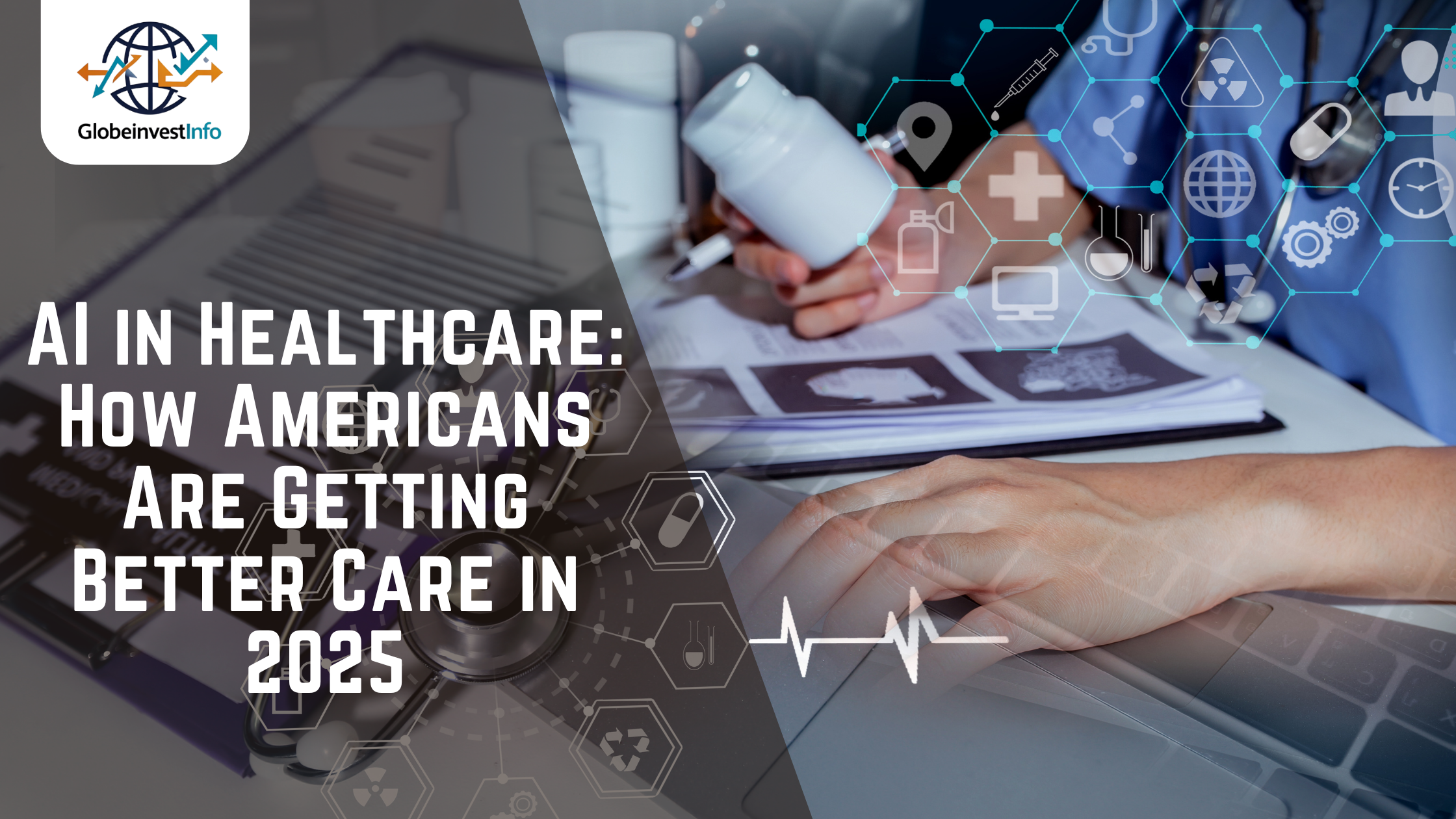Healthcare in the US has always been complex, with challenges like high costs, limited access in rural areas, and long wait times. In 2025, artificial intelligence (AI) is playing a major role in solving these issues and improving the quality of care for patients.
From faster diagnosis to personalized treatments, AI is helping both patients and healthcare providers save time and money while improving outcomes. Here’s how AI is transforming healthcare for Americans today.
1. AI for Faster and More Accurate Diagnosis
Doctors often spend hours reviewing scans, lab results, and patient history. AI platforms like Arterys and Zebra Medical Vision analyze medical images quickly, highlighting potential problems for radiologists.
Why it matters:
- Reduces waiting times for test results.
- Improves accuracy in detecting diseases.
- Helps doctors manage higher patient volumes.
Patients in the US benefit from quicker diagnoses, which can be life-saving in cases like cancer or heart disease.
2. Virtual Health Assistants and Chatbots
AI-powered health assistants like Ada Health and Buoy Health allow patients to describe their symptoms and receive guidance instantly.
Benefits:
- Offers basic medical advice without long clinic visits.
- Directs patients to the right level of care.
- Available 24/7, reducing pressure on hospitals.
For Americans living in rural areas, these AI tools make healthcare more accessible.
3. Remote Monitoring with Wearables
Devices like the Apple Watch and Fitbit now use AI to monitor vital signs, detect irregular heartbeats, and send alerts to doctors.
Impact on patients:
- Reduces hospital visits for chronic illnesses.
- Detects health issues early.
- Gives patients confidence to manage their own health.
Remote monitoring is especially helpful for older adults and people with long-term conditions.
4. AI in Mental Health
Mental health care is often expensive and difficult to access in the US. AI apps like Woebot and Wysa provide affordable, chat-based support.
Why people use them:
- Offers 24/7 mental health assistance.
- Uses cognitive behavioral therapy (CBT) techniques.
- Serves as a first step before professional care.
AI mental health tools make therapy more approachable and reduce stigma around seeking help.
5. Automating Hospital Workflows
Hospitals often face delays because of paperwork and administrative tasks. AI platforms like Olive AI and Notable Health automate billing, scheduling, and insurance claims.
Why it helps healthcare providers:
- Saves hours of administrative work.
- Reduces medical errors in records.
- Frees up staff to focus on patients.
This makes hospital visits smoother and faster for patients.
6. AI for Drug Discovery and Personalized Treatment
Developing new medicines is expensive and time-consuming. AI tools like Atomwise and BenevolentAI speed up drug research by analyzing millions of chemical compounds.
How it helps patients:
- Leads to faster availability of new treatments.
- Makes personalized medicine more affordable.
- Improves treatment outcomes.
This is especially valuable for Americans with rare diseases who need customized therapies.
7. Telemedicine Powered by AI
Telehealth has become mainstream since 2020. Platforms like Teladoc Health and Amwell now use AI to recommend doctors, predict wait times, and guide treatment.
Advantages for patients:
- Provides care from anywhere in the US.
- Reduces travel time and costs.
- Helps doctors treat more patients efficiently.
For people in rural communities, AI-powered telemedicine is a major improvement in access to healthcare.
Curious about how AI is helping businesses outside of healthcare? Check out our post on AI for Business.
FAQs
Q1: Is AI replacing doctors in the US?
No. AI supports doctors by analyzing data and automating tasks, but human judgment is still essential in healthcare.
Q2: Are AI healthcare apps free?
Many tools like Ada Health, Wysa, and Fitbit have free versions. Others offer premium plans with advanced features.
Q3: Can patients trust AI for medical advice?
AI provides useful guidance, but it should not replace professional medical care. Patients should always consult licensed doctors for serious issues.
Q4: How does AI help with healthcare costs?
AI reduces unnecessary hospital visits, speeds up diagnosis, and automates admin work—helping lower overall healthcare expenses.
Q5: What’s the biggest benefit of AI in healthcare?
AI improves access to timely care, especially for rural communities and people managing chronic illnesses.
Conclusion
AI is transforming healthcare in the US by making it faster, more accessible, and more personalized. From wearables that track heart health to chatbots that provide instant advice, AI is giving patients better ways to manage their health.
For Americans, this means shorter wait times, more accurate diagnoses, and improved treatment options. As AI continues to grow in healthcare, it’s helping create a system that works better for both patients and providers.

